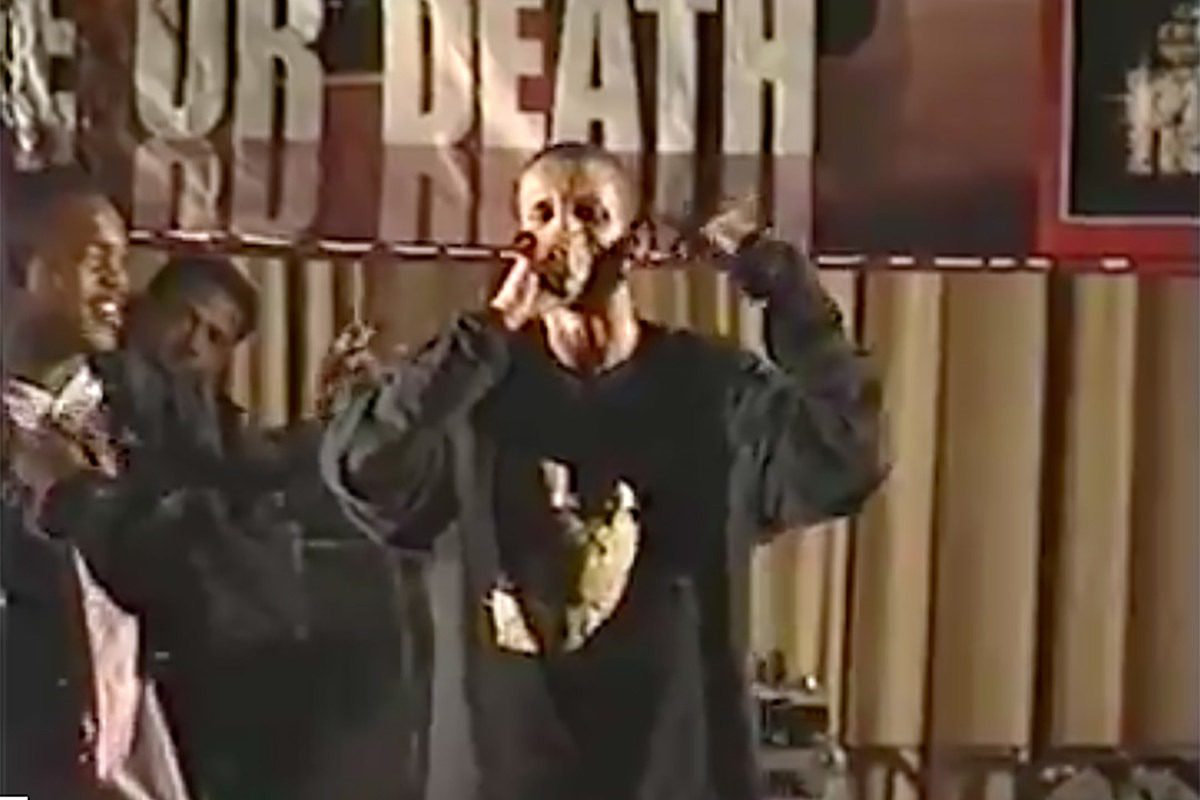No Limit Records rapper McKinley "Mac" Phipps has been behind bars for 21 years for a crime he claims he didn't commit, and now it looks like he could be receiving clemency.
According to a report from The Huffington Post on Monday (Feb. 22), the Louisiana Board of Pardons and Parole recommended earlier this week that Mac, 43, be made eligible for parole immediately. The parole board apparently voted unanimously for the New Orleans rapper's release, but the ultimate decision is up to Louisiana Gov. John Bel Edwards. If Mac's clemency is approved, he will have to sit before the parole board once more.
The hip-hop artist, who played a pivotal role in Master P's No Limit Records empire in the late 1990s, was convicted of manslaughter in 2001, in connection to the February 2000 shooting at Club Mercedes in Slidell, La., which killed 19-year-old Barron “Bookie” Victor Jr. Mac was sentenced to 30 years behind bars.
Mac's wife, Angelique Phipps, seemed hopeful of the new update in her husband's case. "Today’s been a good day," she said. "It’s kind of the beginning of the road to freedom, but there’s still some more bases to go. It’s a start. One step closer.”
She added, “Not only is this amazing for us, but I believe that it also provides hope for those in comparable situations. Our goal is in sight, and we will get to the finish line."
Back in 2015, an investigation led by The Medhill Justice Project sparked doubt regarding a key witness testimony. Thus, offering hope for Mac's release due to false imprisonment.
As far as the details of the incident, Mac was present at the club that night to help promote an open mic event. His mother, father, friends and associates were there as well. Mac was arrested and charged with second-degree murder, which according to Louisiana is when "the offender has a specific intent to kill or to inflict great bodily harm."
Mac's account from the night of the shooting is that he was observing the venue trying to determine whether or not he should perform due to lack of crowd attendance. When he came out of the bathroom, he noticed commotion near the front of the stage, then heard a gunshot. Mac says he was concerned about his mother as she was collecting his appearance fee at the door.
The case appears to have been riddled with questionable testimonies.
A man named Thomas Williams, who worked as Mac's security on the night of the shooting, confessed to the incident less than two weeks after it happened. Williams turned himself in to the St. Tammany Sheriff's Office and claimed that the deceased victim—Barron Victor Jr.—had approached him with a broken beer bottle. Williams said he acted in self-defense. His testimony was later dismissed in court because the St. Tammany Sheriff claimed it didn't match up with the physical evidence.
The key witness, victim Victor's cousin, Nathaniel Tillison, claimed that he saw Mac fire shots at the victim from point-blank range. However, other witnesses from the club contradicted Tillison's version of the story, but also placed him at locations where he wouldn't have been able to see the shooting. Tillison also said that Mac was the aggressor, but in a prior testimony, he identified one of the rapper's associates as the aggressor. Apparently, he also claimed to a deputy at the St. Tammany Sheriff's Office that he saw another man with a gun, saying, "If Mac didn't do the shooting, you know who did."
A woman named Yulon James admitted to not seeing the incident, but in a 2013 affidavit, James said St. Tammany law enforcement coerced her into making Mac out to be the shooter.
Meanwhile, Mac and his mother felt that No Limit Records artists were being targeted by authorities at the time. They also believed that Mac was named as the shooter because he was an identifiable face.
When it came to the trial, there appears to have been inconsistent testimonies and a lack of forensic evidence, so law officials turned to Mac's music as a defense in the case, using rhymes from his 1998 Shell Shocked album, particularly the song "Murda, Murda, Kill, Kill." But Mac's mother said these records were based on accounts the rapper heard from his father who was in the military and fought in the Vietnam War.
It's also important to note that although there were firearms at Mac's home—he had a gun on him that night as well—none of the ammunition matched the firearm that killed Victor. The murder weapon was never found and there hasn't been any physical evidence that would've connected Mac to the shooting.
Also, in 2016, The Huffington Post released a report on jurors at Mac's 2001 trial that did not receive the full story of the case and pertinent information was kept from Mac's defense attorney. The report said the jury "never heard the testimony of Jerry Price, who says Tillison was outside Club Mercedes in Slidell, where the concert took place, and couldn’t have seen the shooting."
XXL has reached out to the Louisiana Board of Pardons and Parole for a comment on this matter.
See 22 Hip-Hop-Related Police Raids

